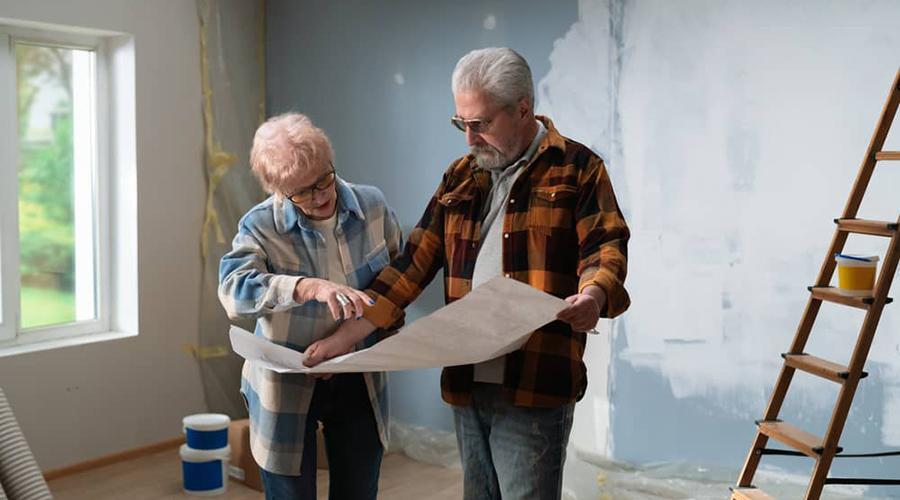What you CAN (and CAN’T) do to improve your SMSF investment property 🏠✔️❌
If you own an investment property through your self-managed super fund (SMSF), you might be wondering: “Can I make improvements to increase its value?” While it’s tempting to roll up your sleeves and use your skills to boost the property’s worth, the rules around what’s allowed are strict. Missteps could trigger hefty tax bills and compliance issues.
Let’s break down what you need to know in simple terms.
Key rules for working on SMSF properties
1. You can’t charge your SMSF for your own work
- If you make repairs or improvements on the property yourself, you cannot be paid for your time unless you’re running a business that offers those services to the public (and your SMSF hires you at market rates).
- The reason? The law requires that SMSFs operate at “arm’s length,” meaning that transactions—whether buying services or materials—must reflect market value to avoid special treatment.
- Your SMSF must follow strict rules when buying from related parties (like you, a family member, or your business). Building materials, such as leftover tiles or wood from a personal project, cannot legally be sold or given to your SMSF.
- While minor repairs are usually allowed, major renovations you do yourself could cause trouble. If you increase the property’s value without proper payments or contributions to your SMSF, the extra profit may be taxed at 45%—much higher than the standard 15% for super funds.
Minor repairs vs. major renovations: What’s allowed?
Let’s say you rent out an SMSF property to tenants who are not family members. Occasionally checking on the property or doing small repairs (like fixing a leaking tap or painting a wall) is fine—these are seen as part of your trustee duties, which you can perform without being paid.
However, bigger projects, like renovating the kitchen or building a new deck, are a different story. If you use your skills to significantly improve the property’s value without your SMSF paying market rates for the work, you could trigger non-arm’s length income (NALI) rules. This means any future rental income or capital gains could be taxed at 45%.
What happens if you or family help with renovations?
- If you do unpaid supervision or small jobs (like painting or keeping an eye on tradespeople), this is generally okay. A responsible trustee would naturally oversee work being done.
- If family members (like your father) perform repairs or renovations, the situation becomes more complicated. Family members who are not trustees of the SMSF can’t legally provide unpaid services without causing compliance issues.
What about materials used in the renovation?
If you or a related party (like your business) provides building materials, even if the SMSF reimburses you later, it can breach superannuation laws. Your SMSF cannot legally acquire supplies or other assets from related parties unless the items meet strict rules—and building materials aren’t on the approved list.
Can renovations be treated as a contribution to your SMSF?
In some cases, it might be possible to treat the renovation work you’ve done as a contribution to your SMSF. However, this is a grey area, and the Australian Taxation Office (ATO) is still refining its guidelines. If treated as a contribution, the full value increase of the property—not just the labor or materials used—would count toward your contribution limits, which could create issues if you exceed the caps.
How to avoid trouble: Stick to arm’s length transactions
If you’re considering any improvements to your SMSF property, the safest approach is to hire external tradespeople and contractors. Paying professionals ensures you stay within the rules and won’t accidentally trigger high taxes or compliance problems.
Here are some practical tips to stay on the right side of the law:
- Supervise work where necessary – As a trustee, it’s fine to oversee work to ensure it’s done correctly.
- Hire licensed professionals – For anything beyond minor repairs, use external tradespeople and pay them market rates.
- Avoid using personal materials – Only buy materials directly through your SMSF, not from yourself or family members.
- Keep records of all work and payments – Clear documentation helps demonstrate you’ve followed the rules.
A word of caution: SMSF property rules are different from personal property
It’s important to remember that the rules for SMSF properties are much stricter than those for properties you own personally. While doing your own renovations on personal property makes sense and can save money, trying the same approach with an SMSF property can result in compliance headaches and higher taxes.
If in doubt, it’s always a good idea to seek advice from a financial adviser or accountant who specialises in SMSFs. Taking the time to follow the rules will help protect your investment and ensure you get the most from your SMSF property in the long run.
Disclaimer: The information provided in this article is general advice and does not consider your specific financial situation. Please consult a qualified financial adviser before making any financial decisions regarding your retirement.
Read more articles on Superannuation and SMSF here





